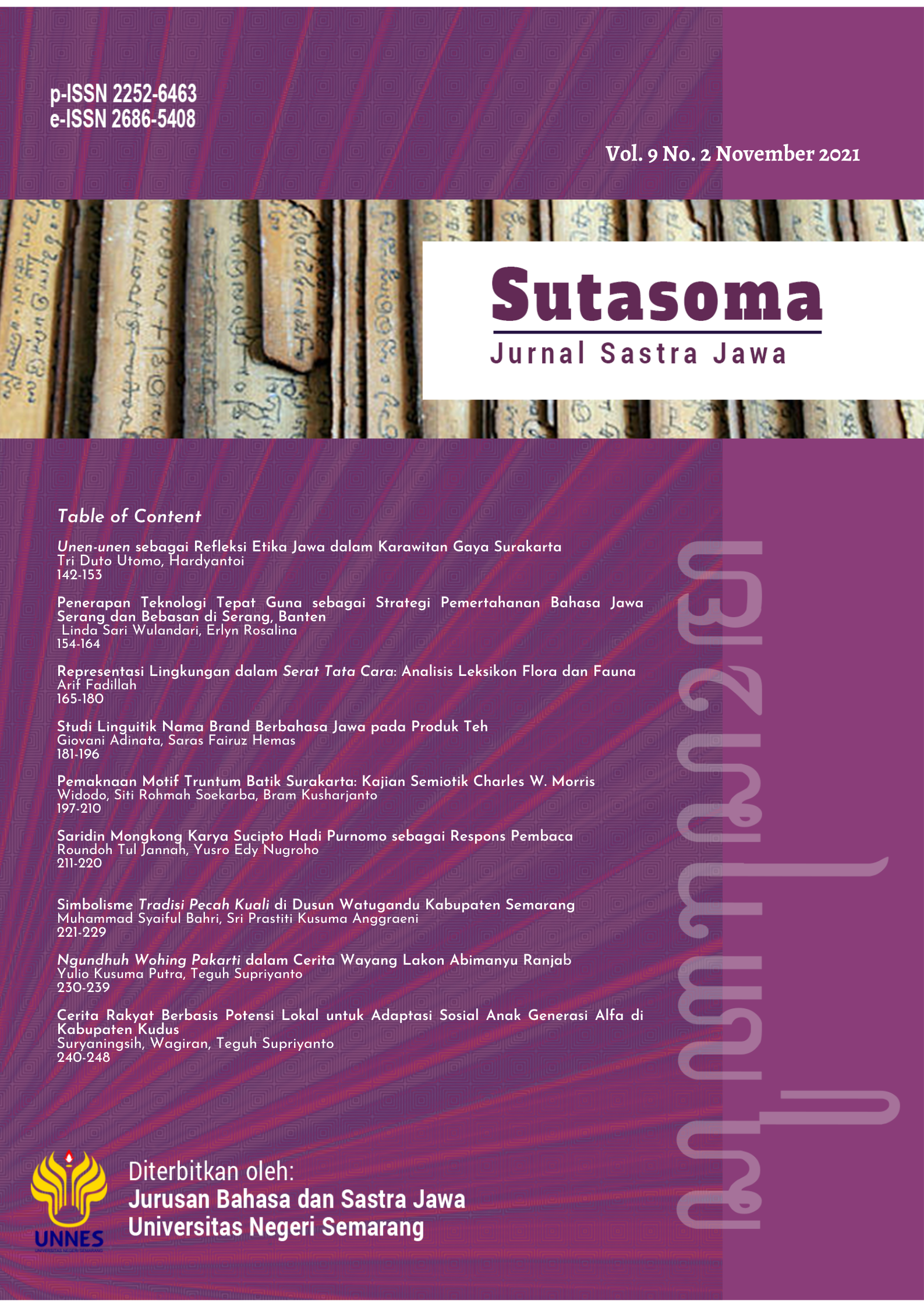Ngundhuh Wohing Pakarti dalam Cerita Wayang Lakon Abimanyu Ranjab
##plugins.themes.academic_pro.article.main##
Abstract
Ngundhuh Wohing Pakarti concept derived from the principle of harmony in Javanese culture of ethical theory. The concept was realized various works of literature one of which is the puppet story Abhimanyu Ranjab, scenes in Baratayuda War tells the causes and consequences of Abimanyu oath to Utari.. The source of story has an interesting value, Serat Baratajuda written by MB. Radyomardhowoe et al, since it told the previous play, namely Kalabendana Lena. The research objectives are: toexplain the coherence concept of Ngundhuh Wohing Pakarti in this story. The study used qualitative approach, the data was collected and analysis using literature review, heuristic, note-taking techniques, hermeneutics and content analysis. The results showed that the interpertation meaning of the wayang story in Ronald Barthes' semiotic theory, found there was a sequential picture among the characters' actions. Point of view of the conformity Javanese culture theory was the interrelation of these as a picture used as moral message of the story. The perspective of the postcolonial literature theory those the connection and the moral message belong to the representation of the mimicry critique, the practice of Dutch colonialism as a karmic act from point of view of the harmony of Javanese culture.
Keywords: the concept of Ngundhuh Wohing Pakarti , abimanyu ranjab, semiotic
##plugins.themes.academic_pro.article.details##
Untuk dapat diterima dan diterbitkan oleh Sutasoma : Jurnal Sastra Jawa, penulis yang mengirimkan naskah artikel harus menyelesaikan semua tahapan review. Dengan mengirimkan naskah, penulis menyetujui persyaratan berikut:
- Hak cipta atas artikel yang diterima diserahkan kepada Sutasoma : Jurnal Sastra Jawa selaku penerbit jurnal. Hak cipta yang dimaksud meliputi hak untuk menerbitkan artikel dalam berbagai bentuk (termasuk cetak ulang). Sutasoma : Jurnal Sastra Jawa mempertahankan hak publish atas artikel yang diterbitkan.
- Penulis diperbolehkan menyebarluaskan artikel yang telah diterbitkan dengan membagikan link/DOI artikel di Sutasoma : Jurnal Sastra Jawa]. penulis diperbolehkan untuk menggunakan artikel mereka untuk tujuan hukum yang dianggap perlu tanpa izin tertulis dari Sutasoma : Jurnal Sastra Jawa dengan pengakuan publikasi awal jurnal ini.
- Pengguna/penggunaan publik dari situs web ini akan dilisensikan ke CC BY-NC-SA (Attribution & Non-Commercial-ShareAlike).
